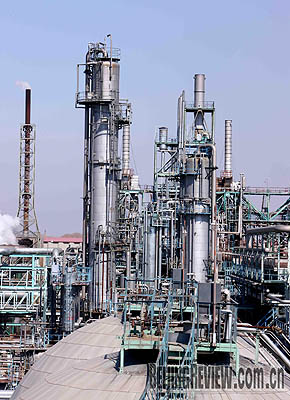|

NORTHERN OIL: The photo shows the Daqing Oil Field in north China's Heilongjiang Province on March 23. The state-owned energy enterprise is making efforts to decrease its energy consumption during the oil-production process
Despite proposals by some foreign government officials and members of the International Energy Agency (IEA), China is not about to make a decision to join the international organization for energy cooperation, but will continue to work closely with it.
U.S. Assistant Secretary of State Daniel Sullivan called on China to join the IEA at the China-U.S. Energy Forum on May 22 in Beijing. He said that China's participation could strengthen the role of the IEA in responding to mounting oil prices. He said he believes that if China considers joining the organization, it would highlight the Chinese Government's dedication to global energy security.
Director of the Program on Energy and Sustainable Development at Stanford University's Freeman Spogli Institute for International Studies, David Victor, said it would be beneficial for China to join the IEA, because it would help the country integrate its oil policy with other oil-consuming countries. Its membership could be part of a larger effort to get people in the West, the United States in particular, to understand China's oil strategy, which is to ensure energy safety, he said.
But not all observers and experts agree. Associate Dean of the Business Administration School at China University of Petroleum, Dong Xiucheng, said China would not join the IEA, because it is not a net oil-consuming country and does not conform to the IEA's policies. But in view of the country's incremental demand for energy, it would be an irreversible trend for China to have closer cooperation and communication with the IEA and other energy groups, he said.
A choice
The Organization of Economic Cooperation and Development (OECD) founded the IEA in 1974 in the wake of the first global oil crisis. By setting up the agency, it hoped to counteract the influence exerted by the Organization of Petroleum Exporting Countries (OPEC), which was founded in 1963.
Pang Changwei, a professor specializing in energy security research at the China University of Petroleum, noted that OPEC's goal differs from that of the IEA, because it seeks to safeguard the returns of its member countries by controlling oil production quantity and oil price.
"OPEC acts like a price cartel, while the IEA is a group that seeks to stabilize or bring down oil prices," he said. "They are two interest-conflicted groups."
Since China discovered and began exploiting oil at the Daqing Oil Field in Heilongjiang Province in the 1960s, it has pursued its own independent energy policy, Dong told Beijing Review. Because China is a big country with abundant energy resources, the government has attached high importance to energy security and developed the economy mainly by relying on domestic energy. Even today, domestic oil powers a large part of China's industries.
"As the world's fifth largest oil producer and third largest oil importer, it would be better for the country to remain neutral and independent," Dong said.
Only OECD members, most of which are rich countries, can join the IEA in principle. The IEA Agreement on International Energy Program requires member countries to maintain oil reserves equivalent to at least 90 days of the amount of their net imports from the previous calendar year, so that they can release them collectively whenever a crisis or other emergency disrupts global oil supplies.
China is not a member of the OECD. Although only full-fledged OECD members can join the IEA, some kind of special membership deal for China could be "relatively easy" to work out, Victor said.
"Technically speaking, China, as a developing country, is far from the membership of the IEA with its oil strategic reserves merely meeting a month's imports-a sharp contrast to the 120-day oil stocks in the United States," Pang said.
If China considered joining the IEA, the organization would have to modify its requirements for the country's oil reserves, because China could not meet the current one in a short amount of time, Pang said. Also, the buildup of the reserve tanks would inevitably drive up the price of oil, which is the last thing the IEA wants, he said.
Energy policy
Because China is not legally bound to the IEA's policies, some analysts question whether the country would use its huge oil stockpiles to manipulate the market in its favor. The concern is understandable, Dong said.
"But China has promised that it would only release the strategic reserves in times of emergency, just as it released 49,000 barrels of fuel from its strategic petroleum reserves after the catastrophic earthquake happened on May 12," Dong said.
| 